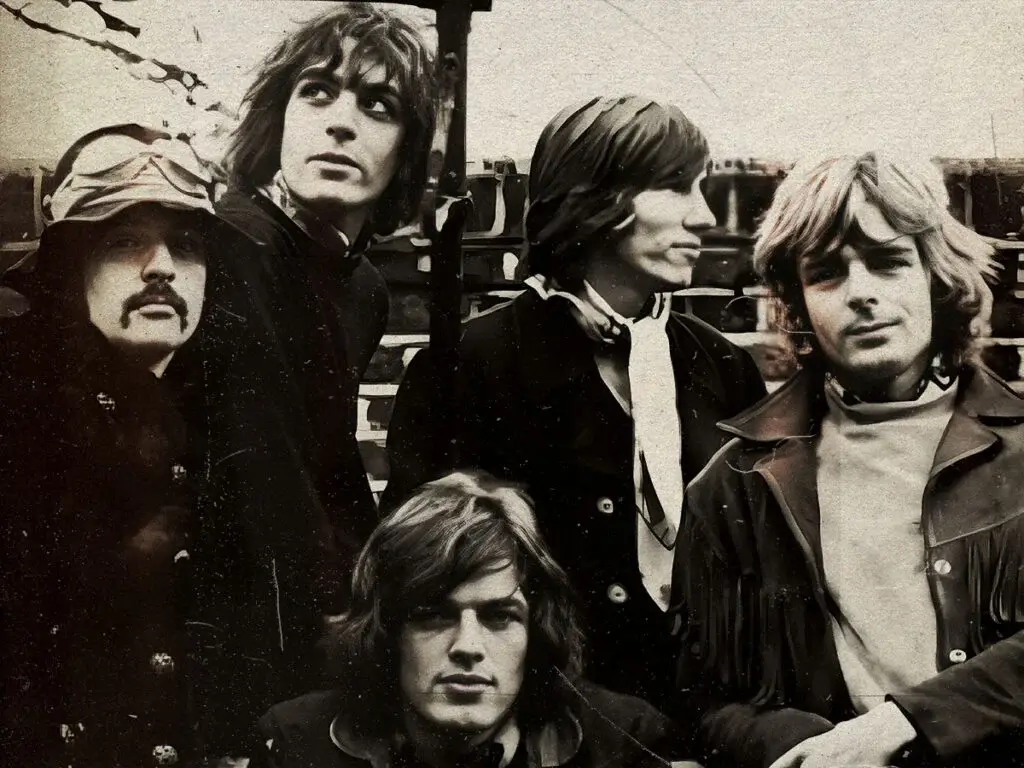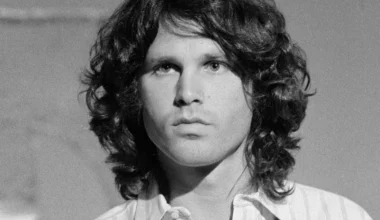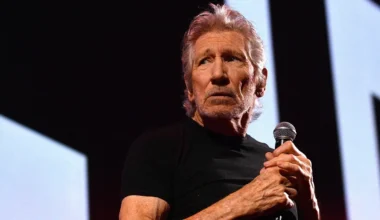Reflecting on the history of alternative music, it seems that engaging in public disputes is a quintessential aspect of the rock ‘n’ roll culture. From Neil Young’s clash with Lynyrd Skynyrd to the internal strife of Oasis, conflicts have become an integral aspect of our cultural landscape. There is an undeniable allure to the age-old tradition of rivalry in the world of rock music. It never fails to captivate fans and get their hearts racing.
At times, rivalries can seem contrived. It seems like this issue is more about seeking attention rather than any real animosity between the bands. Oftentimes, the absence of genuineness is glaringly obvious, leading to a disastrous outcome for all parties involved.
However, occasionally it’s inevitable to become entangled in the chaos. Although the mutual dislike may have been blown out of proportion, when the insults are clever, we all become engrossed as supporters. The explanations behind these rock ‘n’ roll rivalries vary greatly. At times, there can be a deep-seated animosity between the two parties involved, rather than just a lighthearted pursuit of boosting record sales.
This list encompasses a wide range of topics, including conflicts within bands, rivalries over chart performance, and intense animosity. Although feuds may seem insignificant, contemporary music captivates us because they exemplify the reasons. It’s not just about the songs, it’s about the wide range of characters, stories, and creative energy that accompanies them.
The most intense rock ‘n’ roll feuds
Sex Pistols and Green Day
Johnny Rotten has a reputation for being quite outspoken as a rock star, and there is a certain band that the fierce frontman strongly dislikes: Green Day, the pop punk group. In 1996, Rotten didn’t shy away from causing controversy and targeting the up-and-coming artists, despite the commercial nature of a reunion tour.
Billie Joe Armstrong from Green Day made a casual comment during an interview when asked about the reunion of Sex Pistols. He playfully altered the words of Rotten and said, “I am the anti-Christ. Please buy our merchandise.” Rotten was then asked by an MTV journalist what his band could offer a 16-year-old punk fan that Green Day couldn’t, and he cleverly responded: “A unique experience”.
He then elaborated on his crude joke by asserting: “No, you’ve seen imitators, that’s what you’ve seen,” said Lydon with disdain. And you accepted that, believing it to be the essence of it all, Alfie. Well, it isn’t. It’s slightly higher. It’s referred to as content, something that those mediocre third-rate companies lack.
“I remember when Johnny Rotten was going around, accusing us of stealing from him,” remarked Billie Joe Armstrong, the lead singer of Green Day, in an interview with Spin. He then delivered a cutting remark to dismiss the accusation. “It’s interesting how the influence of one band, like the Sex Pistols, can shape the trajectory of another band, such as Green Day. In turn, Green Day’s success may have played a role in inspiring the Sex Pistols to embark on their notable reunion tour.” Everyone has their own preferences.
Neil Young and Lynyrd Skynyrd
In 1970, Young directed his attention towards the deep south with his song ‘Southern Man’, which his influential album After The Gold Rush included. The content of the song caused a significant backlash from many of his fans in that region, including the members of Lynyrd Skynyrd. Continuing his exploration of the Deep South, Young revisited the controversial subject with ‘Alabama’ two years after ‘Southern Man’.
Ronnie Van Zant of Lynyrd Skynyrd felt compelled to defend his community, expressing to Rolling Stone: “We believed Neil was taking aim at all the ducks just to hit a few.” We’re proud individuals who have a strong sense of morality and ethics.
He not only discussed the topic in the press, but also expressed his hometown pride in the studio while recording ‘Sweet Home Alabama’. The anthem even mentioned Shakey when Van Zant proudly sang: “I hope Neil Young will remember, a southern man don’t need him around anyhow.”
Pink Floyd
Roger Waters and David Gilmour of Pink Floyd have always had a somewhat tumultuous partnership. Waters has always had a preference for working independently and taking charge of his own projects. Gilmour became a member of Pink Floyd in 1968. However, over time, their creative visions clashed, leading to a power struggle between the two men. This eventually resulted in Waters departing from the band in 1985.
When announcing his departure, Waters sent a statement to EMI and CBS, citing the ‘Leaving Member’ clause in his contract. As the primary creative driving force behind the band, he expressed doubt in Pink Floyd’s ability to carry on without him. Given the circumstances, Waters initiated legal proceedings in the High Court to officially dissolve Pink Floyd, stating that the group had lost its creative spark.
In 2018, drummer Nick Mason expressed his opinion on the matter, stating that he finds it quite peculiar. According to Mason, the issue lies in Roger’s lack of respect for David. He believes that writing is of utmost importance, and that while guitar playing and singing require skill, the quality of the writing should be the primary factor for evaluation. I believe it bothers Roger that he made a mistake by assuming that the band would collapse without him.
Things took a turn for the worse recently when Waters faced accusations of antisemitism. Gilmour’s wife, Polly Samson, chimed in during the discussion and stated: “Furthermore, he defends Putin and exhibits dishonesty, theft, hypocrisy, tax evasion, lip-syncing, misogyny, envy, and megalomania.” That’s quite enough of your nonsense. Gilmour supported her allegations, and the fractured relationships appeared to reach an unsustainable conclusion.
Dave Grohl and Courtney Love
After the passing of Kurt Cobain, Dave Grohl and Courtney Love experienced a period of grief that resulted in a lengthy feud lasting 15 years. During this time, they exchanged numerous hurtful words that they would later come to regret. Throughout the years, the ongoing feud has never truly been resolved.
During an appearance on Howard Stern in 1999, the Foo Fighters member expressed his preference for a Hole song called ‘Teenage Whore.’ He mentioned that he believed it was the only song that the artist herself had written. A legal dispute arose over unreleased Nirvana music, with claims that Nirvana was synonymous with Kurt Cobain.
She went as far as to suggest that Grohl had a strong fixation on Cobain and insinuated that the sole reason he chose Taylor Hawkins as the Foo Fighters’ drummer was due to his resemblance to the former lead singer. The Hole singer also claimed that he made advances towards her and Kurt’s daughter, Frances Bean Cobain.
The two embraced in 2014 at the Rock and Roll Hall of Fame during Nirvana’s induction, seemingly leaving their past conflicts behind. However, Love has since mentioned that Grohl is excessively benefiting from Kurt’s wealth and reputation, suggesting that their history is still a sensitive issue for both of them.
Morrissey and Robert Smith
It all started when Morrissey had a conversation with The Face in 1984 and was asked a provocative question: “If you were in a room with Robert Smith, Mark E. Smith, and a loaded Smith & Wesson, who do you think would be the first to bite the bullet?”
“I would arrange them in a way that a single bullet would go through all of them at once,” Morrissey replied. Robert Smith is quite a complainer. It’s quite interesting that he started wearing beads when the Smiths became popular and there are photos of him with flowers. I assume he’s quite supportive of our work, but I’ve never been a fan of the Cure… not even ‘The Caterpillar.’
A few years later, Smith responded to Q by saying: “He’s quite a difficult person to deal with.” He embodies all the qualities that people often associate with me. Morrissey consistently delivers repetitive performances whenever he speaks. I have two songs in my repertoire, namely ‘The Love Cats’ and ‘Faith’. If only people understood the simplicity of joining groups like the Smiths.
In 2018, Smith spoke with The Guardian and expressed his lack of understanding regarding the feud. Morrissey later expressed remorse for the heated exchange.
Liam and Noel Gallagher
The Mancunian band rose to fame as Britpop giants, captivating the world with their distinctive style, unwavering confidence, and sharp wit. Although Noel was the primary songwriter in the band, Liam was the one who spoke for them, and when they joined forces, they became an unstoppable duo. So powerful, in fact, that when they did start to clash with each other, as siblings often do, their volatile personalities always resulted in a catastrophe.
Ultimately, the band parted ways in 2009 after a significant incident in Paris, leading to the permanent breakup of Oasis. By this time, the once close bond between the two brothers had significantly deteriorated. They had reached a point where they were now traveling separately. What was once a passion had turned into a job driven by financial gain. Unfortunately, Noel found himself enduring personal turmoil in exchange for a substantial paycheck.
“All that being said, we only had two gigs remaining, and I believe that if I had reached the end of that tour and taken a six-month break, I would have simply moved on and forgotten about it,” Noel shared with Esquire in 2015. However, the final tipping point occurred during a heated altercation in Paris. There are no hidden shadows.
Since then, studio executives and Liam Gallagher have been eagerly advocating for an Oasis reunion that would have a profound impact on the nation. However, the likelihood of such an event ever occurring seems highly unlikely. Interestingly, every time it appears to be within reach, it somehow feels more distant when it fails to materialize. Now, it appears that the peak of the interest in it has passed and the brothers will remain apart.
Oasis and Blur
They despised more than just one another. The Gallagher brothers and Blur were engaged in a fierce rivalry that deeply divided the nation of Britain. The two bands were delighted to add fuel to the fire. Engaging in lighthearted banter through the media, Oasis amusingly mocked Blur by describing their music as “Chas & Dave chimney sweep music,” prompting Blur to condescendingly label them as “Oasis Quo.”
They fiercely competed for the top spot, with Blur’s ‘Country House’ narrowly beating Oasis’ ‘Roll with It’ to claim the highly sought-after number one position. Blur added insult to injury for the Manchester band when they showcased their hit single on Top of the Pops, with bassist Alex James sporting an Oasis T-shirt.
“It was absurd, to be honest,” Noel Gallagher mused in 2019. “That entire aspect of the Britpop movement was completely unnecessary.” We had initially planned to release this as our single from the record. However, we received word from some individuals at Creation that Blur would also be releasing a single on the same date. As a result, we made the decision to push back our release by a week. Then they called and informed me that they have also postponed theirs by a week.
Bob Dylan and John Lennon
It’s a challenge to determine who has had a greater impact on the music world: Bob Dylan or John Lennon. Both artists have exerted a tremendous amount of influence over numerous musicians over the past fifty years, including each other. Although the two artists frequently crafted songs with each other in mind, Dylan’s inspiration stemmed more from anger than admiration.
Dylan was furious about the striking resemblance between ‘Norwegian Wood’ and his own style. He expressed his frustration by creating a parody track called ‘Fourth Time Around’, in which he playfully mocked Lennon. Upon listening to Rubber Soul, Dylan allegedly expressed his confusion by asking, “What is this?” Hey there, it’s Bob. John is helping me! Even Sonny & Cher are copying me, but, damn it, I was the one who came up with it.
He made sure to leave Lennon a clear message at the end of the track, knowing that his biggest fan would surely analyze it. In the final two lines, he sings, “I never asked for your crutch, Now don’t ask for mine” — revealing his clear thoughts on Lennon idolizing him.
Nirvana and Guns N’ Roses
When Nirvana gained widespread recognition with Nevermind in 1991 and captured the attention of the music industry, they were determined to distance themselves from bands like Guns’ N’ Roses, whom they considered outdated both in terms of their music and their personalities.
“They asked us to open for them,” Dave Grohl later recalled, referring to Guns N’ Roses and Metallica’s upcoming massive stadium tour. So Axl had been repeatedly contacting Kurt. One day we’re strolling through an airport, and Kurt exclaims, ‘Oh no!’ Axl Rose keeps calling me incessantly. I believe it conveyed a larger meaning. Nirvana had no desire to transform into Guns N’ Roses.
So Kurt began making negative comments in interviews, and then Axl retaliated by responding. The conversation continued with a back-and-forth reminiscent of teenage drama,” the Nirvana drummer added.
The pair had been engaged in a heated exchange for a while, but the situation escalated at the MTV Awards in 1992 when Cobain and Nirvana became involved in a dispute with Guns’ N’ Roses in front of the entire music industry. Cobain and Rose were complete opposites.
The Beatles and The Rolling Stones
No list would be complete without mentioning The Beatles and The Rolling Stones’ famous ‘rivalry’. During the vibrant era of the sixties, when the music scene was revolutionized by pop music and the British invasion, two iconic bands emerged as the unrivaled leaders: The Beatles and The Rolling Stones. Naturally, in the eyes of the public, there was always a band that stood above the rest. Consequently, this led to The Beatles and The Rolling Stones being portrayed as fierce competitors in the newspapers of that era.
John Lennon exacerbated the situation by further inflaming tensions when he stated, “Every single thing we did, Mick imitates us,” according to the Beatle. “And I would appreciate if someone from the underground community could acknowledge this, you know, Satanic Majesties is Pepper; ‘We Love You,’ it’s the most ridiculous thing, that’s ‘All You Need Is Love,’” Lennon harshly expressed.
His comment holds an undeniable truth. However, this statement applies to any band that was active during The Beatles’ era. Despite Lennon’s lack of approval for some of The Stones’ work, there was no ill will towards them as individuals, and the two bands had a surprisingly harmonious relationship in private.








